Calixto Bieito’s Carmen: three words to make an opera critic’s heart leap. Until quite recently, Bieito was the operatic provocateur of the century — the director who opened Verdi’s Un ballo in maschera with a row of men defecating on stage, and who presented Mozart with a side order of torture porn. Veterans of his Carmen told of fellatio and gratuitous nudity; it all sounded very promising. Add the malicious pleasure of seeing what unrevivable horrorshow ENO had lumbered itself with now — what steaming paella of body fluids it was about to dish up to an audience who’d paid for an evening of good tunes and sultry senoritas — and the review practically writes itself.
In retrospect, the fact that this show has been in ENO’s repertoire since 2012 should have been a red flag. Michael Tanner spotted it first time around: this is actually a fairly straightforward updating of Bizet’s opera. We’re in the 1970s — the fag end of the Franco years — and one set of Spanish stereotypes replaces another. Flamenco skirts and sun-kissed plazas give way to Ray-Ban-wearing soldiers, trashily dressed tourists and one of those colossal bull silhouettes that are such a primal, unsettling presence in the Spanish landscape, and which Google tells us are actually adverts for brandy.
There are flashes of the old Bieito nastiness. The curtain rises on a soldier undergoing a brutal hazing ritual, and one of the gypsy women has a little daughter, dolled up in queasily sexualised make-up and earrings. If there was any fellatio I missed it, though a squaddie did strip off in the Act Three Entr’acte, and sauntered around butt-naked, slapping his thighs to the music. (The audience giggled.) Some gestures, meanwhile, have congealed into clichés. It can only be a matter of time before someone sues after yet another director has shone yet another bank of spotlights straight into the audience’s retinas.
This revival might have hit home harder with a different cast. Justina Gringyte as Carmen has a terrific, smoky voice and she pushed her phrases back against the rhythm of the famous ‘Habanera’. If only she’d had even a spark of chemistry with Sean Panikkar’s José, whose brassy tenor took on an excitingly jagged edge in his more impassioned climaxes, but who descended from mummy’s boy to murderer without ruffling his neatly gelled hair. Ashley Riches, as a dishevelled Escamillo, didn’t offer much in the way of romantic competition either. His set pieces glowed rather than swaggered, and while conductor Valentina Peleggi found lush, luminous sounds in Bizet’s orchestra, the whole thing felt more like a guided ramble than an inexorable rise to boiling point.
Gringyte (and Bizet) aside, the strongest personality here was still unquestionably Bieito. The atmosphere of a dusty, liminal Spain is pungently realised, and certain ideas — such as the way he stages the final confrontation as a stylised corrida — strike to the heart of the drama. In Act Two, José slapped Carmen, and then powered on with his ‘Flower Song’ as she lay trembling on the floor. Too much, too soon was my instinctive response; but then Bizet’s fate motif echoed through the orchestra, pointing the way to the opera’s brutal final scene, and it had to be conceded: you could quarrel with Bieito’s pacing, but you couldn’t dispute that this was a meaningful response to music and text. At this rate we’re going to have to start taking him seriously.
I don’t imagine for a minute that Gerald Barry wants anyone to take his opera Alice’s Adventures Under Ground seriously, though it demands, on every level, a virtuoso performance. The Royal Opera gave it the deluxe treatment, with Claudia Boyle as Alice (there were two completely different casts for an eight-show run) scampering all over Barry’s demented coloratura and the orchestra, under Finnegan Downie Dear, hurling out blocky polytonal scales, flute cadenzas and cod-baroque canzonas in futile competition with Antony McDonald’s spectacular production. Imagine the effort required to perform something like that, only to be upstaged by an ensemble of sentient cakes, or an animatronic Cheshire Cat. A cast of ten covered 56 named roles, delivering Barry’s self-written libretto at a relentless yell.
Barry shreds Lewis Carroll’s prose into verbal kedgeree. The expected set-pieces never materialise, as favourite scenes from the books are glimpsed and then abandoned. I started to yawn after an interminable sequence of musical in-jokes set in French, German and Russian, but the small boy a few seats along from me was more outspoken, and was carried out in tears. In fact, whenever the music dropped below fortissimo, a chorus of unhappy wails filled the stalls. Parents had presumably seen that the Royal Opera was giving Alice at 11.30 on a Saturday morning, and thought that it would be a lovely treat for the whole family. They won’t do that again.
Got something to add? Join the discussion and comment below.
Get 10 issues for just $10
Subscribe to The Spectator Australia today for the next 10 magazine issues, plus full online access, for just $10.
You might disagree with half of it, but you’ll enjoy reading all of it. Try your first month for free, then just $2 a week for the remainder of your first year.

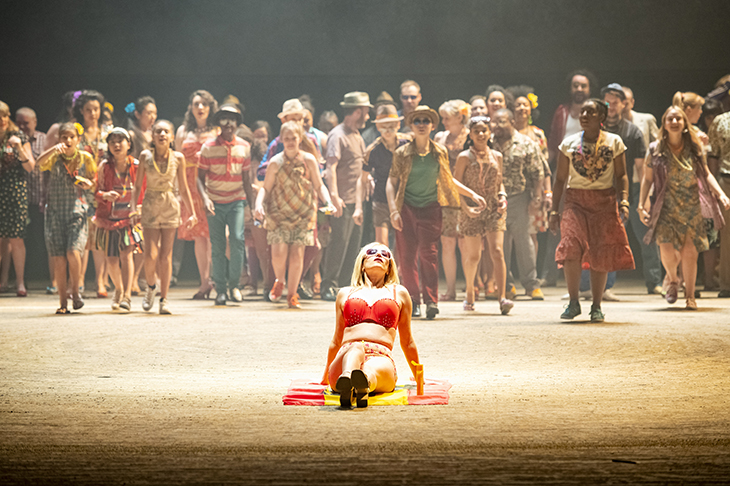
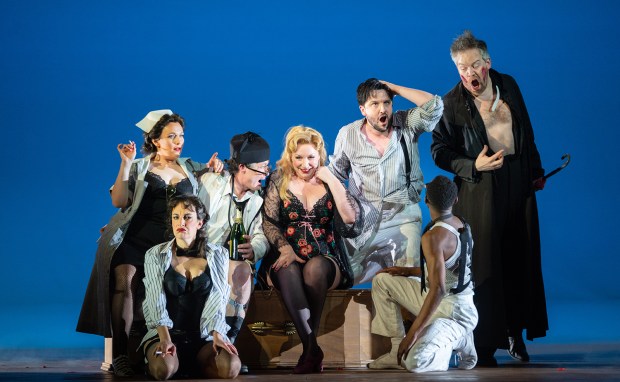
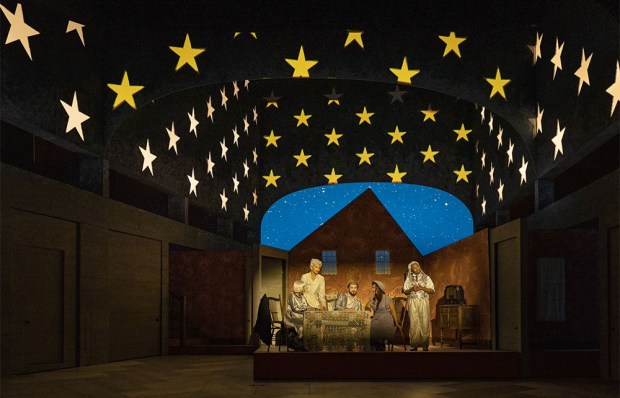
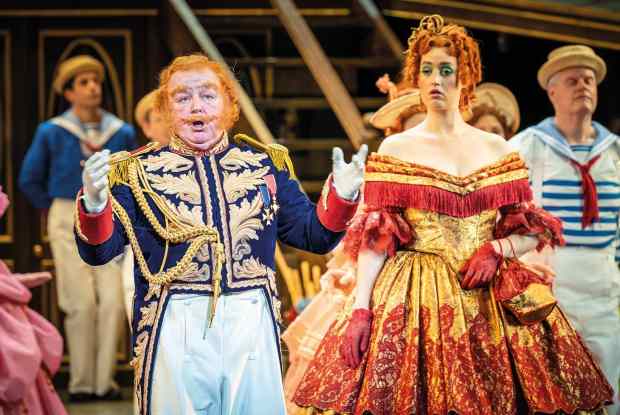
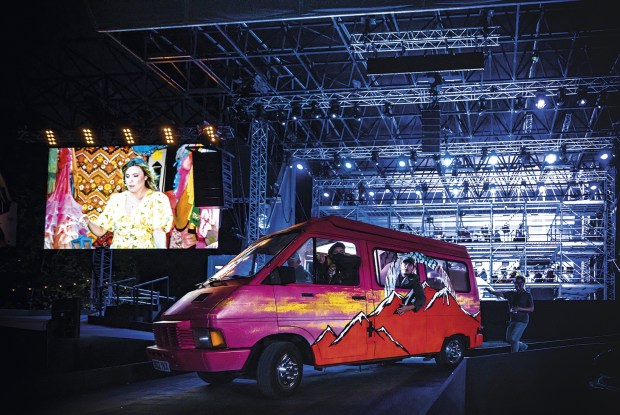
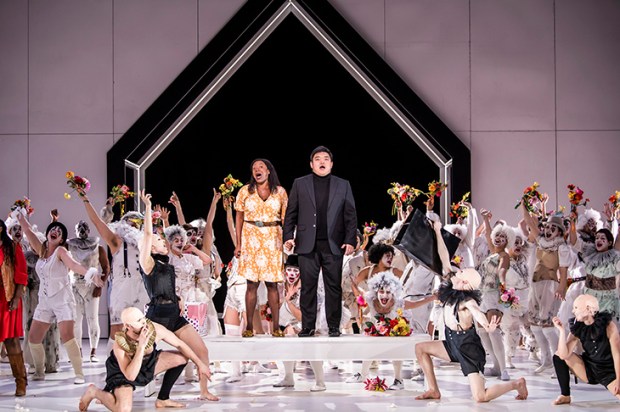
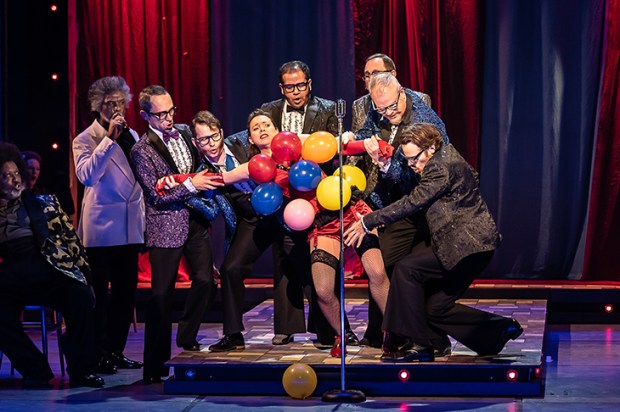






Comments
Don't miss out
Join the conversation with other Spectator Australia readers. Subscribe to leave a comment.
SUBSCRIBEAlready a subscriber? Log in